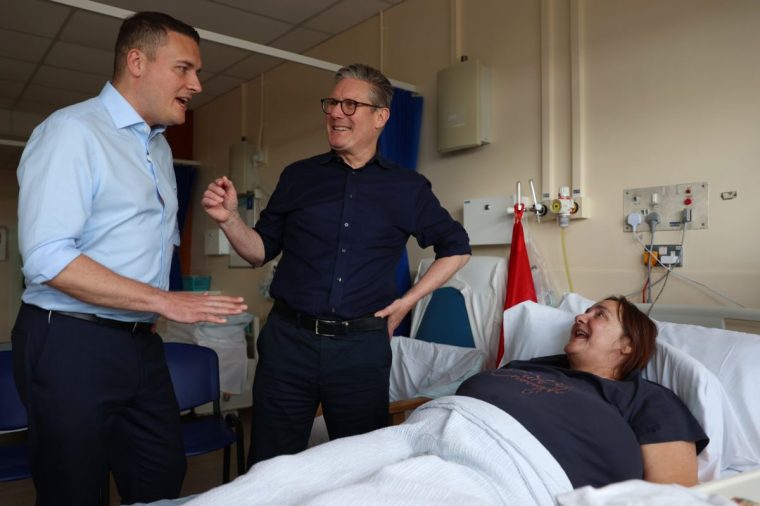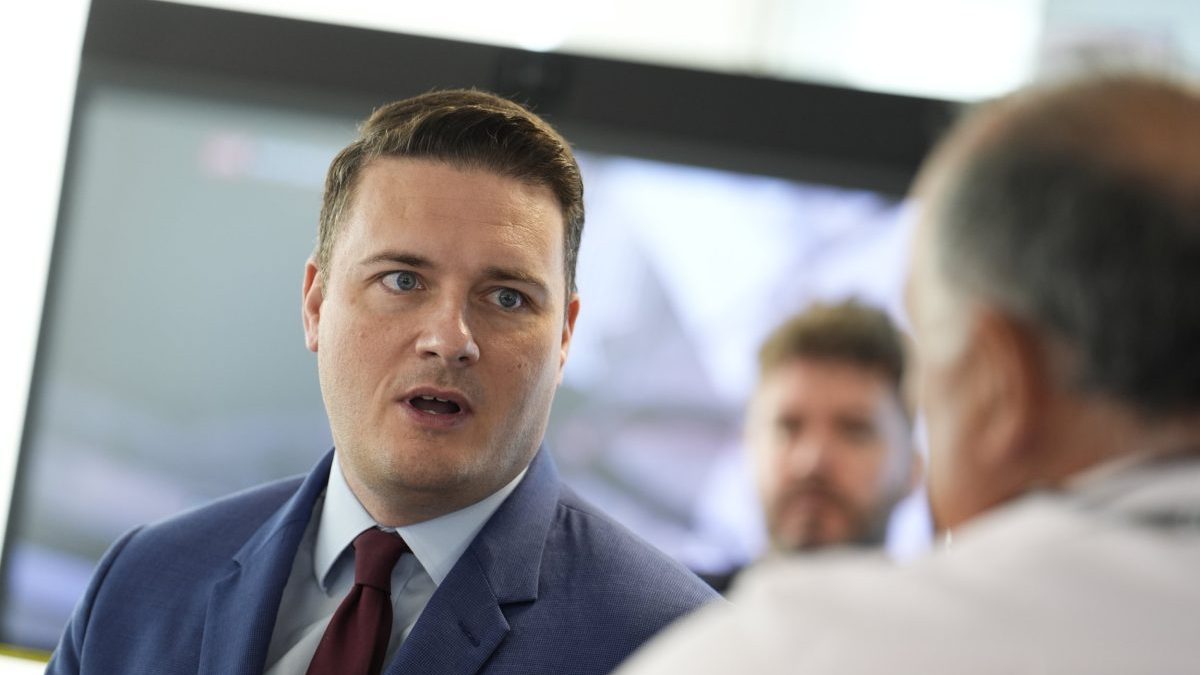New AI technology which transcribes doctors’ conversations with patients and produces clinical notes has produced startling results in an NHS study
Accident and emergency departments would be able to treat nearly 10,000 more patients every day across England under a plan to use AI technology to transcribe doctors’ notes.
A study involving nine NHS sites found that GPs and hospital doctors could spend nearly 25 per cent more of their shift treating patients directly rather than dealing with time-consuming paperwork, while overall appointment times were reduced by 8.2 per cent.
The pilot study, led by Great Ormond Street Hospital (GOSH), involved doctors wearing disc-shaped devices clipped to their shirts that used ambient voice technology to transcribe their conversations with patients.
The software, developed by the UK start-up Tortus, then produces their clinical notes, which can be edited and processed by the doctors before they are saved to the patient’s record.
Currently, clinicians dictate or manually type notes into a computer and compose letters during and after the consultation, which takes longer.
Tortus is fully compliant with UK GDPR and no patient data is held by the organisation or used to train the AI.
The technology does not make any clinical decisions, and there is always a “human in the loop” to make sure the consultant or GP is still across the details of each patient.
The study found that the technology also led to doctors treating 13.4 per cent more patients per shift in A&E departments.
Transformative technology
Health Secretary Wes Streeting told The i Paper the technology would be “transformative” and that he wanted doctors to do less “pen-pushing” and spend more time with patients.
Ministers are to take the results of the study and devise an implementation plan for NHS England, subject to final funding decisions by the Treasury.
Dr Shankar Sridharan, consultant paediatrician and national leader for AI at NHSE, said the GOSH-led study would mean 9,259 extra A&E consultations a day across England if it were rolled out nationwide.
This would save the equivalent of £176m in documentation time and unlock an additional £658m in capacity in A&E departments alone every year.
 Wes Streeting and Keir Starmer during a previous visit to a hospital (Photo: Getty)
Wes Streeting and Keir Starmer during a previous visit to a hospital (Photo: Getty)
However, there could still be concerns about mistakes being made by the AI, such as the wrong clinical history being transcribed.
Health minister Stephen Kinnock said ministers and NHS officials would work carefully on implementing the technology across the service to ensure it was done correctly.
But on a visit to the A&E department at St George’s Hospital in Tooting, south London, where the technology has been trialled, Kinnock said: “What we’re seeing today is technology that’s got the potential to revolutionise the relationship between patient and doctor, revolutionise the way in which the public accesses the NHS, revolutionise the way that the different parts of the NHS talk to each other, gather and use information and data about patients.
“And all of that, of course, leads to enhanced patient outcomes, speed of treatment, accuracy – a really important part of this as well. I think it’s got huge potential.
“Clearly we do now need to look at the results of the study and then see how we take it forward.
“If we’re going to do this, we need to move as quickly as possible on it, but also make sure that we’ve got a watertight implementation plan.”
The government is finalising the exact spending envelopes for each part of DHSC, which will be complete within weeks.
‘A boost to morale and engagement’
If it is going to be rolled out it would be in “a matter of months rather than of years”, the minister said.
He said it would give GPs and hospital doctors “a real boost in terms of their morale and in terms of their engagement with the work and the kind of spring in your step that you need to have when you come to work – the spring in your step is not helped by sitting and having to write up your notes for two hours”.
Dr Ahmed Mahdi, A&E consultant at St George’s, told The i Paper: “Everyone thinks that AI is going to dehumanise things, but this has enabled doctors to have more eye contact, more personal interaction with doctors.”
The study also reported a 35 per cent reduction in clinicians feeling overwhelmed by notetaking, while patients and carers also reported improved interactions and greater satisfaction.
Streeting said: “When I visit hospitals and GPs, I hear the same frustration from clinicians time and again: they came into medicine to help people, but they’re spending too much time pushing pens instead of focusing on patients.
“For too long, our brilliant doctors and nurses have been drowning in administrative tasks. This AI scribe technology changes that by giving them nearly 25 per cent more time with their patients.
“This can be transformative for the NHS… It is exactly the kind of game changing innovation we need to build an NHS fit for the future and shift care from analogue to digital as part of our 10 Year Health Plan.
“The NHS was built on the simple principle that healthcare should be free at the point of use. But it must also be there when you need it.
“Technologies like this will help us keep that promise to the British people.”
